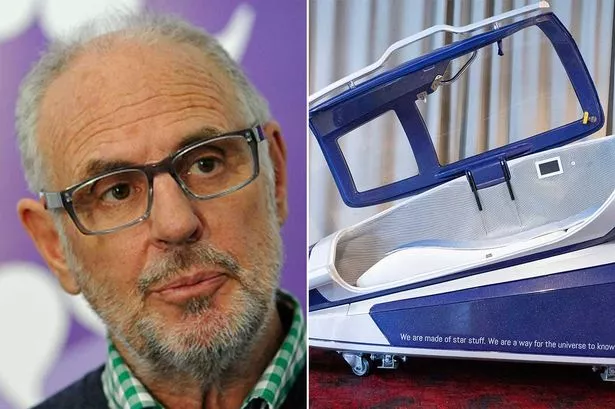Dr. Philip Nitschke, often referred to as “Dr. Death” due to his advocacy for assisted suicide, is making headlines with his ambition to introduce Sarco, an innovative assisted-suicide pod, to the United Kingdom. Nitschke, a prominent figure in the euthanasia debate, believes that the picturesque landscapes of the Lake District could serve as an ideal backdrop for this controversial option. Sarco is designed to facilitate a peaceful and dignified end-of-life experience for those who seek it, utilizing a machine that allows individuals to control the timing and manner of their death.
Nitschke’s enthusiasm for bringing Sarco to the UK is rooted in his longstanding commitment to providing individuals with the right to choose how and when they die. He argues that the current legal frameworks surrounding assisted dying are often restrictive and fail to accommodate the desires of many terminally ill patients. By promoting Sarco, Nitschke aims to offer a more accessible and configurable alternative for individuals who wish to end their suffering. His vision aligns with a growing global movement advocating for the rights of individuals in making end-of-life decisions.
The choice of the Lake District as a location for Sarco is significant, as it symbolizes a unique convergence of natural beauty and the gravity of life-and-death decisions. The region, known for its stunning vistas and tranquil environment, could provide an ideal setting for people seeking assisted dying. Nitschke envisions that such a serene backdrop would allow individuals to experience a sense of peace and autonomy while navigating their final moments. This approach contrasts starkly with the clinical and often impersonal atmosphere of traditional medical settings.
The discussion surrounding assisted suicide remains complex and polarizing in many jurisdictions, including the UK. While there is increasing public support for the legalization of assisted dying, significant opposition persists, often grounded in ethical, moral, and religious concerns. Critics argue that allowing assisted dying could lead to potential abuses, a slippery slope where vulnerable individuals might feel pressured to choose death over life. Nitschke acknowledges these concerns but maintains that with proper regulation and safeguards, individuals can be empowered to make informed choices about their own lives.
As advocates like Nitschke push for legislative changes to accommodate assisted dying, the debate often touches on broader societal values, including personal autonomy, compassion, and the role of medical professionals in end-of-life care. Proponents argue that individuals should have the right to dictate the circumstances of their own demise, particularly in cases of terminal illness or intractable suffering. This perspective is gaining traction in public discourse, indicating a potential shift in how society views the options available for those facing terminal conditions.
In conclusion, Dr. Philip Nitschke’s desire to introduce the Sarco assisted-suicide pod to the UK, particularly in the scenic Lake District, reflects the evolving conversation around end-of-life choices. With a dedicated advocacy for individual autonomy, he aims to challenge existing legal barriers and promote a more compassionate approach to assisted dying. As public attitudes shift and discussions surrounding this sensitive issue continue, the potential implications for healthcare and societal values remain profound, warranting careful consideration and ongoing dialogue among lawmakers, medical professionals, and the public at large.














